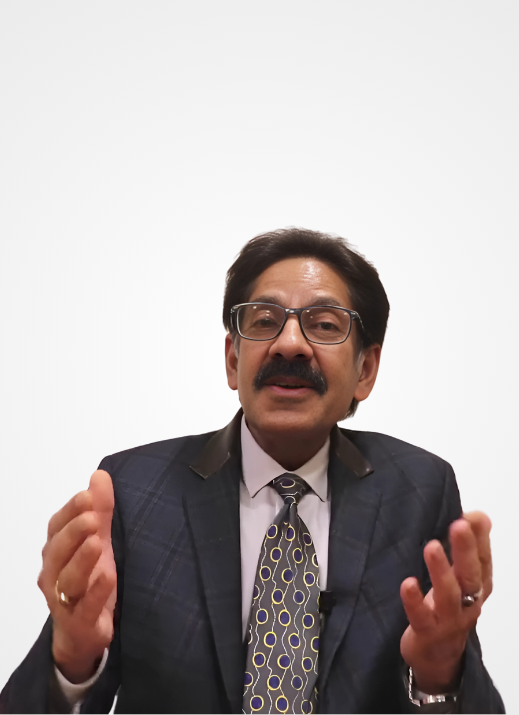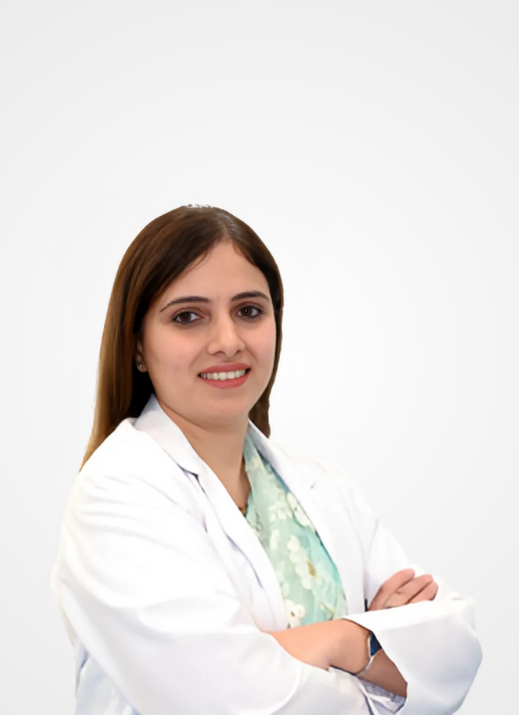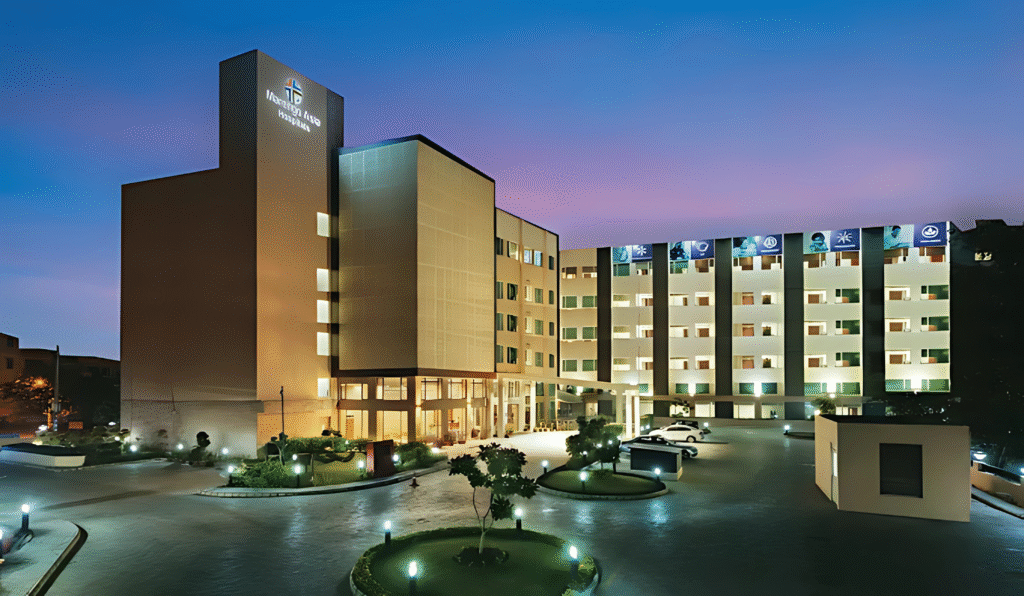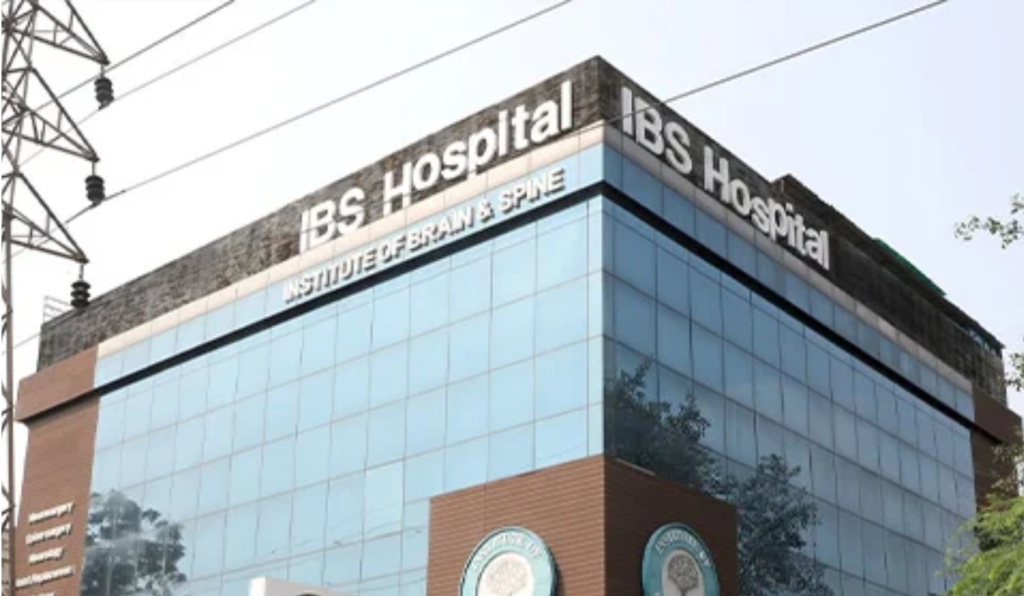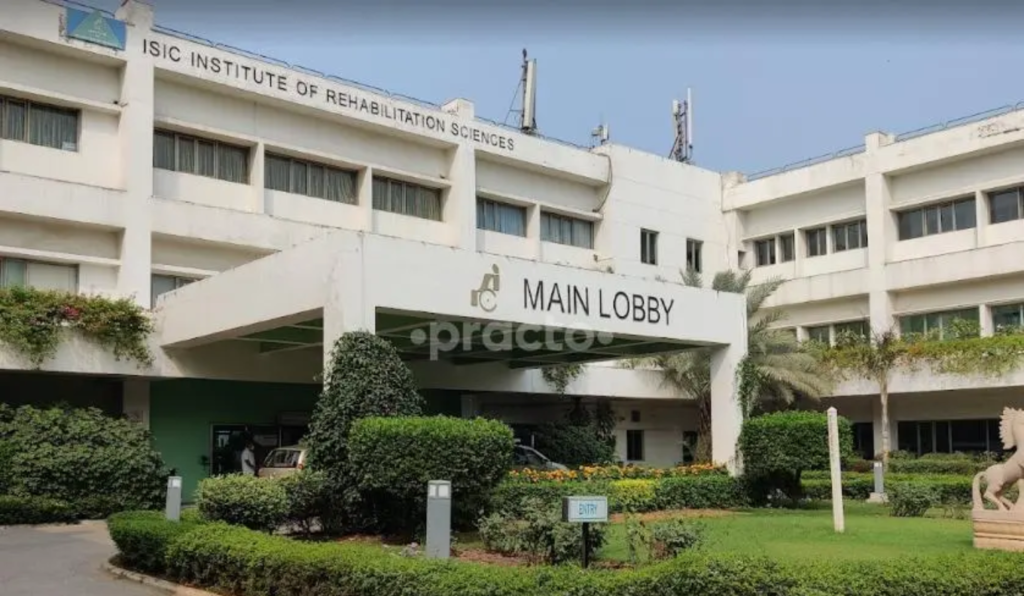Parkinson’s Disease Treatment Cost in India

What is Parkinson’s Disease?
Parkinson’s disease is a progressive nervous system disorder that primarily affects movement. It develops gradually, often starting with a barely noticeable tremor in just one hand. As it progresses, it causes stiffness, slowness of movement, balance issues, and speech changes. The disease is linked to the loss of dopamine-producing neurons in a region of the brain called the substantia nigra.
How Does Parkinson’s Disease Develop?
Parkinson’s disease develops gradually as neurons in a brain region called the substantia nigra begin to die. These neurons produce dopamine, a neurotransmitter essential for regulating movement.
As dopamine levels decline, communication between brain regions involved in movement becomes impaired.
This results in classic symptoms such as tremors, rigidity, bradykinesia (slowed movement), and postural instability.
The cause is often unknown, though genetic mutations and environmental toxins are linked to increased risk.
Parkinson’s typically unfolds over years, starting subtly and progressing to more severe motor and non-motor symptoms, including mood changes and cognitive decline.
Causes and Risk Factors of Parkinson’s Disease
Parkinson’s Disease is a progressive neurological disorder that primarily affects movement. It occurs due to the degeneration of dopamine-producing neurons in a part of the brain called the substantia nigra. This loss of dopamine disrupts smooth and coordinated muscle movements, leading to tremors, rigidity, and slowed motion. The exact cause is not fully understood, but several factors have been identified.
Primary Causes of Parkinson’s Disease
Genetic Mutations: Specific gene changes like LRRK2 or PARK7 can lead to hereditary Parkinson’s, although this form is rare.
Environmental Toxins: Long-term exposure to pesticides, herbicides, and heavy metals may damage brain cells involved in movement regulation.
Oxidative Stress: Imbalance between free radicals and antioxidants in the brain contributes to cellular damage and neuron loss.
Mitochondrial Dysfunction: Problems in energy production within brain cells can accelerate their degeneration.
Lewy Bodies Accumulation: Clumps of abnormal proteins (alpha-synuclein) inside neurons interfere with their function and survival.
Risk Factors Contributing to Parkinson’s Disease
Age: It most commonly affects people over the age of 60. Risk increases with age.
Gender: Men are more likely to develop Parkinson’s than women.
Family History: Having a close relative with Parkinson’s slightly raises the risk.
Head Injuries: Past traumatic brain injuries may increase the likelihood of developing the disease.
Rural Living: Studies suggest that people in rural areas exposed to well water and agricultural chemicals may face higher risk.
Symptoms of Parkinson’s Disease
This progressive nervous system disorder mainly affects movement and worsens over time.
Tremors, especially in hands or fingers while at rest
Slowed movement (bradykinesia) making daily tasks harder
Muscle stiffness or rigidity
Impaired posture and balance
Speech and writing changes, such as slurred speech
Types of Parkinson’s Disease
Prostate cancer can be classified into different types based on how the cancer cells develop and behave. The most common type is adenocarcinoma, but there are also rare and aggressive forms of prostate cancer. Understanding these types helps doctors determine the best treatment approach.
The most common form, characterized by tremors, stiffness, and slow movement. Cause is unknown, and it progresses gradually over time.
Caused by medications, brain injuries, or other neurological disorders. Symptoms mimic Parkinson’s but often have a different progression and treatment approach.
Include conditions like Multiple System Atrophy (MSA) or Progressive Supranuclear Palsy (PSP), which have symptoms similar to Parkinson’s but progress more rapidly and respond poorly to standard treatment.
Vascular Parkinsonism (linked to small strokes), Juvenile Parkinsonism (early onset before age 20), and Genetic Parkinsonism (due to hereditary mutations).
Which Type of Parkinson’s Disease is the Most Dangerous?
Akinetic-rigid Parkinson’s (or Parkinsonism with little tremor but severe movement freezing) is considered most debilitating, as it progresses faster and leads to greater loss of motor function.
Why Choose India for Neurology and Neurosurgery Treatment?
India has become a global hub for advanced neurology and neurosurgery treatments, offering a unique combination of cutting-edge medical technology, experienced specialists, and compassionate care. Patients worldwide travel to India not only for high-quality treatments but also for the affordability and holistic healing approach that complements neurological recovery.
India is home to board-certified neurologists and neurosurgeons trained at top global institutions. They have extensive experience handling complex conditions such as brain aneurysms, epilepsy, multiple sclerosis, Parkinson’s disease, and more. Their deep expertise ensures accurate diagnosis and effective treatment plans tailored to individual needs.
Indian hospitals are equipped with the latest neurological diagnostic and treatment technologies, including:
Functional MRI and PET scans
Intraoperative neuro-navigation
Robotic-assisted neurosurgery
Deep Brain Stimulation (DBS) systems
These advancements significantly enhance precision in both surgical and non-surgical neurological care.
One of the biggest advantages of choosing India is the affordability. Treatment costs in India can be 50–70% lower than in the US, UK, or other Western nations, without compromising on quality. Pricing is often transparent, and patients receive clear breakdowns before the treatment begins.
Neurological recovery often requires long-term rehabilitation. Indian hospitals offer integrated neuro-rehab services including:
Physiotherapy and occupational therapy
Speech and cognitive rehabilitation
Pain and stress management programs
This ensures patients receive holistic care throughout their recovery journey.
Unlike in many countries where wait times for neurological or neurosurgical consultations and procedures can stretch for weeks or months, Indian hospitals offer quick scheduling and immediate access to treatment, especially critical in time-sensitive cases like strokes or brain tumors.
India is a global leader in medical tourism, offering:
✔ Dedicated international patient coordinators
✔ Medical visa assistance for easy travel
✔ Affordable accommodation & travel support
✔ Multilingual staff, including English-speaking doctors
This ensures a smooth and hassle-free experience for foreign patients traveling to India for treatment.
Different Types of Treatments for Parkinson’s Disease
Parkinson’s Disease (PD) is a progressive neurological disorder that primarily affects movement, speech, and cognition. Treatment in India emphasizes a comprehensive approach combining medication, rehabilitation therapies, and surgical options to improve quality of life and slow progression.
How It Works:
Medications such as Levodopa, dopamine agonists, and MAO-B inhibitors help restore or mimic dopamine levels in the brain, alleviating motor symptoms like tremors and rigidity.
When It’s Used:
First-line treatment in early and moderate stages of Parkinson’s to control movement-related symptoms.
Benefits:
Immediate symptom relief
Non-invasive option
Customizable combinations to manage fluctuations
How It Works:
Deep Brain Stimulation involves implanting electrodes into specific brain areas to regulate abnormal electrical signals and reduce motor symptoms.
When It’s Used:
For advanced Parkinson’s when medication becomes less effective or causes severe side effects.
Benefits:
Reduces tremors and dyskinesia
Adjustable and reversible
Enhances quality of life in late-stage PD
How It Works:
Structured physical exercises target muscle strength, flexibility, balance, and gait, slowing the motor decline associated with Parkinson’s.
When It’s Used:
Throughout the disease course to maintain mobility and prevent complications like falls.
Benefits:
Improves muscle coordination
Helps maintain independence
Reduces stiffness and improves posture
How It Works:
Speech-language pathologists help patients overcome speech slurring, low voice volume, and swallowing difficulties through vocal exercises and breathing techniques.
When It’s Used:
Recommended in moderate to advanced stages when speech and swallowing are affected.
Benefits:
Enhances communication skills
Improves clarity and volume of speech
Reduces choking risks
How It Works:
Helps patients maintain independence by adapting daily routines, training in fine motor tasks, and using assistive devices.
When It’s Used:
In any stage of Parkinson’s to support activities of daily living (ADLs) like dressing, writing, or cooking.
Benefits:
Promotes self-care and autonomy
Reduces reliance on caregivers
Adapts home and work environments for safety
Different Procedures for Parkinson’s Disease
India offers cutting-edge surgical and non-invasive procedures for Parkinson’s management, many of which are tailored for patients unresponsive to medications. These procedures help control symptoms, especially tremors and stiffness, and delay disease progression.
How It Works:
Electrodes implanted in the brain deliver electrical impulses to specific targets (like the subthalamic nucleus) to regulate abnormal brain activity.
When It’s Used:
For patients with severe motor complications not adequately controlled by medications.
Benefits:
Long-term relief from tremors and rigidity
Programmable and adjustable post-implant
Often reduces need for medication
How It Works:
A non-invasive procedure that uses focused sound waves to target and destroy small brain areas causing tremors, without surgical incisions.
When It’s Used:
For patients with medication-resistant tremors or who are not candidates for invasive surgery.
Benefits:
No incisions or implants required
Quick recovery and minimal risk
Effective tremor reduction
How It Works:
Delivers genes directly into the brain to either restore dopamine production or protect neurons from degeneration.
When It’s Used:
Still experimental but showing promise in clinical trials for advanced cases.
Benefits:
Potential to slow disease progression
Targets the root cause of dopamine loss
May reduce future need for medication
How It Works:
Robotic systems aid neurosurgeons in the highly precise placement of DBS electrodes, improving accuracy and safety.
When It’s Used:
Preferred in complex cases or for patients requiring enhanced precision due to anatomical variations.
Benefits:
Enhanced accuracy in electrode placement
Reduces surgical time and complications
Improves DBS outcomes
How It Works:
Keyhole or stereotactic approaches are used for targeted interventions like lesioning or implantation with minimal disruption to surrounding tissues.
When It’s Used:
For patients unfit for open procedures or when minimal downtime is preferred.
Benefits:
Faster recovery time
Lower risk of infection or complications
Less post-operative discomfort
Best Doctors for Parkinson's Disease Treatment in India
Best Hospitals for Parkinson's Disease Treatment in India
Med Travel India Offerings
How does Med Travel India help you?
Med Travel India is dedicated to assisting international patients in accessing high-quality prostate cancer treatment in India. From selecting the best hospitals to providing logistical support, we ensure a seamless medical journey. Our team works closely with top oncologists and healthcare facilities to offer personalized treatment plans tailored to each patient’s condition.
We take care of every aspect of medical travel, allowing patients to focus solely on their recovery. Below is a list of services provided by our company:
Services offered by Med Travel India

Seamless Planning for Your Medical Journey
Before you even arrive, we take care of all the groundwork. From connecting you with top specialists to ensuring all necessary medical evaluations are completed, we make your journey stress-free. Our goal is to provide clarity and comfort before your treatment begins.
- Free Medical Consultation
- Personalized Treatment Plan
- Estimated Cost & Duration
- Visa Assistanc
- Second Opinion Service
- Pre-Arrival Coordination
Worry-Free Travel & Comfortable Stay
We ensure that your journey to India is as smooth as possible. From booking your flights to arranging a comfortable stay near your hospital, we handle everything so you can focus on your health.
- Flight Booking Assistance
- Accommodation Booking
- Airport Pickup & Drop
- Language Interpretation Services
- Local Transport Arrangements
- Currency Exchange Support


World-Class Medical Care, Personalized for You
We ensure that your medical treatment is well-organized and efficient. Our team works closely with hospitals to facilitate smooth admissions, consultations, and procedures, ensuring you receive top-quality healthcare.
- Priority Appointment Scheduling
- Direct Hospital Admission
- Specialist Doctor Assignment
- Pharmacy & Medical Supplies
- Hospital Admission & Discharge Support
- 24/7 Customer Assistance
Continued Support for a Speedy Recovery
Your health journey doesn’t end after treatment. We provide post-procedure assistance to ensure a smooth recovery, whether you stay in India for rehabilitation or return home.
- Post-Surgical Care Coordination
- Rehabilitation & Physiotherapy
- Virtual Doctor Consultations
- Diet & Lifestyle Guidance
- Extended Stay Arrangements
- Post-treatment Medical Supplies


Beyond Healthcare, A Comfortable Experience
We offer additional services to make your stay in India comfortable and enriching, ensuring that your well-being is cared for beyond the hospital.
- Medical Insurance Settlement Help
- SIm Card Assistance
- Customized Sightseeing Tours
- Medical Document Assistance
- Personalized Assistance for Family Members
- Concierge Services
Reviews From Our Patient






